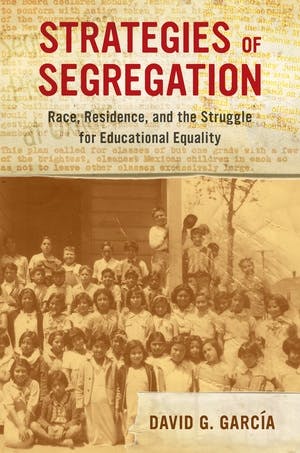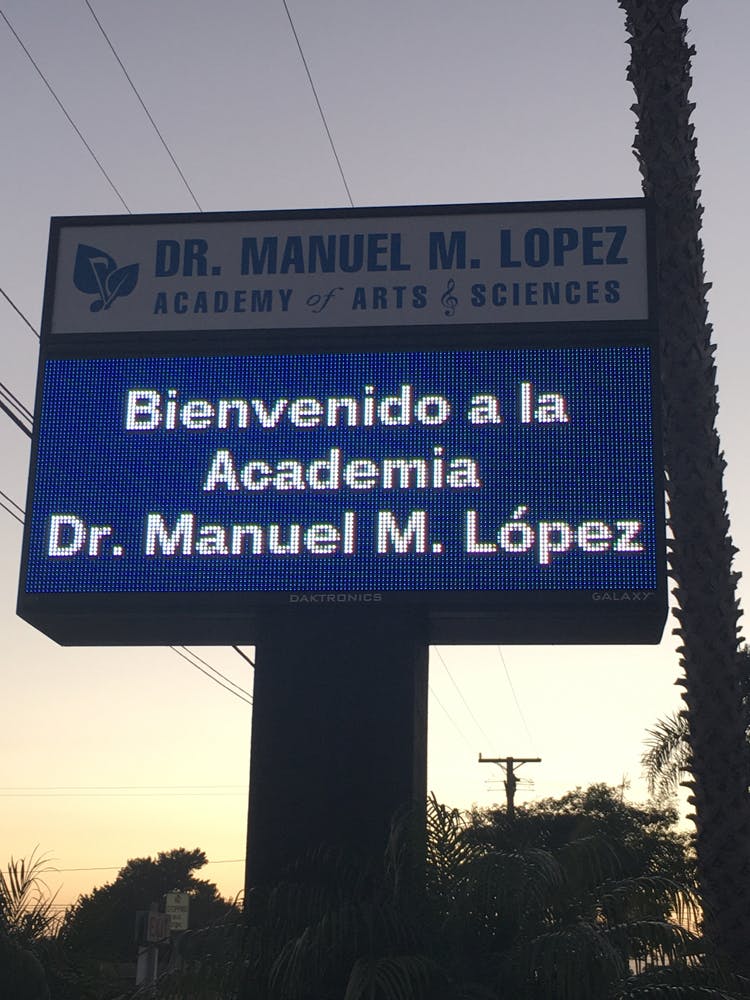David G. García: “Strategies of Segregation” Inspires Students to Mobilize for a New School Name
David G. García’s book, “Strategies of Segregation: Race, Residence, and the Struggle for Educational Equality” (2018, Berkeley: University of California Press) inspired two sixth grade students attending Richard B. Haydock Academy of Arts and Sciences to petition the Oxnard School Board to change their school name. The students mobilized after reading how Haydock, Oxnard’s first mayor and school superintendent for four decades, worked to segregate and undereducate Mexican American students.
Professor García is a historian and an associate professor in the division of Social Sciences and Comparative Education at the UCLA Graduate School of Education and Information Studies. His book has been very well received with several published reviews and scholarly recognitions, including a 2019 Critics’ Choice Book Award from the American Educational Studies Association and a 2020 Society of Professors of Education Outstanding Book Award. He appreciates the academic accolades but considers the change in the school name to be a special honor.

“Because I grew up in Oxnard since age two, and I attended Haydock school myself, it is incredibly rewarding and humbling to have my own community and these young students read my book, and then take action.”
García explains that Lauren Mendez, a 6 grade teacher at Haydock, reached out to him in September 2018 to share that her students, Kimberli Oregel and Desiree Luis wanted to know more about their school’s namesake and that in their research, they came across his book. They were stunned to read about Haydock’s insidious efforts, driven by his White supremacist ideology. García uncovered Haydock’s detailed speeches about Mexicans and Blacks from the early 20 Century, and meticulously followed the implementation of his ideas in the policies and practices of the Oxnard School District.
García identifies Haydock as among a group of White men and women who designed a separate and unequal educational system.
“Their actions of mundane racism implemented policies aimed to systematically subordinate Mexicans as an everyday, commonplace way of conducting business within and beyond schools,” says Professor García.
After reading the book and with the encouragement of their teacher, Oregel and Luis wrote a letter to the Oxnard School Board Superintendent to request a change to the name of their school. In May 2019, they brought their cause to a board meeting. Standing together at the podium, Luis spoke to the board, stating, “… the reason we want to change the school name is because Richard B. Haydock was a racist man…we believe racism should not be tolerated or celebrated.” With García’s book in hand, Oregel remarked, “From all this data, I realized someone had to stand up for what is right, just like the many other people who took a stand and said ‘no’ to segregation and racism before me.”
In a unanimous vote, the board moved to begin the process of renaming the school. In June 2020, the district completed the process and renamed the school, Dr. Manuel M. López Academy of Arts and Sciences.
“The students’ actions speak to the ways that recovering and learning our history can be empowering and transforming,” García says. “One of the things I advised the school board after they decided to change the school name was that Haydock’s story should not be erased. As a historian, I am against any erasure of our past, but there is a difference in who or what events we choose to commemorate. There should be some sort of exhibit or plaque on the school campus that documents why the board voted to change the name. I think that future generations of students should learn that history.”

“And beyond names,” García adds, “we should be thinking about how we remedy the injustices of the past, which persist in shaping present conditions in our schools. As we do this, I hope we listen to and learn from the students and teachers such as those at Dr. Manuel M. López Academy of Arts and Sciences.”
On Thursday, Oct. 8 at 6 p.m. PST, Professor García and Eddie R. Cole, UCLA associate professor of higher education, will hold a Vroman’s Live virtual discussion on “Strategies of Segregation” and Cole’s recent work, “The Campus Color Line: College Presidents and the Struggle for Black Freedom,” which was published by Princeton University Press this September. The event will be presented on Crowdcast; visit this link to register and attend.
Photo courtesy of David G. García